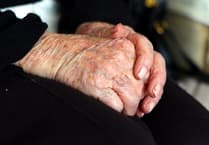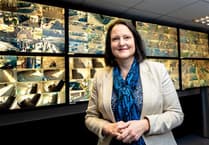NEW funding for local charities and community groups has been announced as part of the ongoing commitment of the Government and NHS to tackle health inequalities for those in need of life-saving transplants or regular blood transfusions, particularly those from black, Asian and mixed ethnic backgrounds.
The Community Grants Programme, previously known as the Community Investment Scheme, is run by NHS Blood and Transplant and aims to fund community, faith or belief organisations to deliver projects that encourage more black and Asian people to become donors.
Minister for Primary Care and Public Health, Neil O’Brien, said: “Blood, organ and stem cell donations save lives – and this funding will ensure projects that aim to encourage donation and increase education are led by, and tailored for, the communities we hope to see increased donations from.
“I encourage trusted community organisations to apply so we can continue tackling health inequalities and work to ensure people have access to vital blood, organ and stem cell donations when they need them, regardless of their ethnic background.”
The scheme was set up to find community organisations who can help to address barriers, normalise blood and organ donation and drive behaviour change.
The aim is to address the shortage of organs for those waiting for a transplant from all black and Asian groups as a whole and those with mixed ethnic backgrounds by raising awareness of both deceased and living donation.
The scheme also aims to inform people about the urgent need for more black blood donors to treat blood disorders like sickle cell.
NHS Blood and Transplant will also once again be working in partnership with leading blood cancer charity Anthony Nolan to raise awareness of stem cell donation.
In the scheme’s fifth year, NHS Blood and Transplant is now looking for applications that will engage diverse communities at grassroot level. There is a total of £700,000 available to community-based projects across England and Wales.
Organisations can apply up to £20,000 in funding for a 12 month project, more information can be found on Community Grants Programme website, link available below.
Funds available for each area are as follows:
• Blood donation projects - £300,000
• Living Kidney donation projects - £150,000
• Deceased organ donation projects - £150,000
• Stem Cell donation projects - £100,000.
Umar Malik, NHS Blood and Transplant’s Community Funding Manager, said: “Through the evolution of the Community Grants Programme, we hope to grow the power of trusted community groups to prompt conversation, tackle misinformation, educate and offer reassurance around blood, deceased organ, living kidney and stem cell donation.
“We are asking more people from black, Asian and mixed ethnic backgrounds to help us to address the health inequalities that many people from these backgrounds may face. By giving your support you can help save lives.”
Many families from black and Asian backgrounds and those of mixed ethnic heritage find it difficult because organ donation is not something they have discussed with their relatives. Others still have concerns about whether organ donation can go ahead in line with their religious beliefs.
Projects funded by the Community Grants Programme will be able to encourage more people to discuss organ donation within their families and communities, whilst also dispelling any myths.
Sickle cell is the fastest growing genetic condition in the UK. People from black African or black Caribbean backgrounds are most likely to have this condition which can often require regular life-saving blood transfusions.
A total of 250 donations are needed every day, due to the increase in demand from hospitals to treat patients with Sickle Cell, in comparison to 150 donations needed a day from five years ago.
For those reliant on regular transfusions, it is essential that they receive blood matched as closely as possible to their own. A match is most likely to come from a donor of the same ethnicity.
Finally, NHS Blood and Transplant is working in partnership with Anthony Nolan to support projects which raise awareness of stem cell donation.
A total of £100,000 of funding is available from stem cell awareness with £60,000 contributed from NHS Blood and Transplant and £40,000 contributed from Anthony Nolan.
Stem cell transplants are needed to treat blood cancers including leukaemia and lymphoma, along with certain blood disorders such as Thalassaemia, Aplastic Anaemia and other genetic conditions.
As with blood and organ donation, patients in need of a stem cell transplant are far more likely to match with stem cell donors of a similar ethnicity. People from black and Asian backgrounds often have rarer tissue types which makes it harder to find matching donors.
Henny Braund MBE, Chief Executive of Anthony Nolan says: “In the UK just 72 per cent of transplant patients receive the best possible match from an unrelated stem cell donor; this drops dramatically to around 37 per cent of patients from minority ethnic backgrounds.
“This scheme enables Anthony Nolan to continue to do vital work with different communities, encourage more young people to become potential donors and further diversify the stem cell register.
“The more people from minority ethnic backgrounds there are on the register, the less chance there is that someone will have to hear a match cannot be found for them, simply because of their heritage.
“If you're aged 16-30, in good general health and from a minority ethnic background, you could give blood cancer and blood disorder second chance of life. Joining the register couldn’t be easier – simply visit: www.anthonynolan.org .”
More information about the Community Grants Programme and details of how to apply can be found at: https://www.nhsbt.nhs.uk/communitygrants or by contacting: [email protected] .
Applications should be submitted by midnight on January 8, 2023.
The Community Grants Scheme is part of a Government-funded campaign led by NHS Blood and Transplant with support from the National BAME Transplant Alliance (NBTA) to address the urgent need for donors from black, Asian and mixed ethnic backgrounds.




